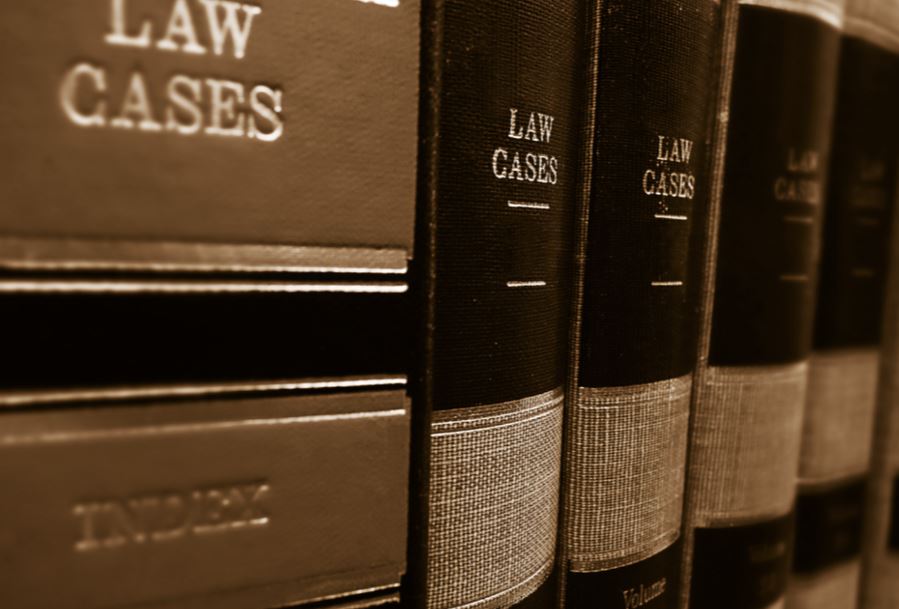In Initial Services Ltd v Putterill [1968] 1 Q.B. 396, the court expanded the situations in which an employee may breach confidentiality in relation to their employer. Whereas previously this was only permitted where the employee uncovered evidence of crime or fraud, the court now permits breaches of confidentiality where there has been crime, fraud, misdeed or activity contrary to the public interest.
Summary of Facts
Mr Putterill was a sales manager at the claimant’s launderette. It was an implied term of his contract that he was not to disclose confidential information, relating to the business, which he had obtained in the course of his employment or as a result of it. Mr Putterill discovered a scheme to fix prices which had been entered into by a ring of local launderettes. This scheme should have been registered with the Board of Trade under section 9 of the Restrictive Trade Practices Act 1956. The launderettes were aware of this duty but did not register the practice. Mr Putterill left his job at the launderette but took with him a copy of a letter which exposed the scheme. In breach of his duty of confidentiality, he handed this letter over to The Daily Mail who printed extracts of it in their story reporting on the breach of the Restrictive Trade Practices Act 1956.
The claimant launderettes sought damages for breach of confidentiality from Mr Putterill, and from The Daily Mail as assistants to this breach, as well as a permanent injunction and an account of the money paid to Mr Putterill by The Daily Mail for the ‘confidential’ letter.
Issues
There were two issues in question in the case:
- The previous cases dealing with whistleblowers such as Mr Putterill: Gartside v Outram (1856) 26 L.J.Ch. 113 and Weld-Blundell v Stephens [1919] 1 K.B. 520, only recognised exceptions to an employee’s duty of confidentiality if there was suspicion of a crime or fraud. There was no crime or fraud in Mr Putterill’s case as, although there is a duty to register restrictive practices under the Restrictive Trade Practices Act 1956, omitting to register a restrictive practice is not a crime. Therefore, the claimants argued that Mr Putterill could not have been justified in breaching his duty of confidentiality.
- The next issue was whether Mr Putterill was at fault for going to the press with his findings, rather than to the Board of Trade.
Analysis in Court
The court began its analysis by confirming that there is a general obligation not to disclose confidential information, but that there are exceptions to that obligation, as established in earlier cases of Gartside v Outram and Weld-Blundell v Stephens.
On the First Issue
The judges rejected the argument that there could not be an exception to confidentiality due to lack of crime or fraud on three bases:
- Although Gartside v Outram only established that breaching confidentiality is justified where there an employer is committing crime or fraud, it did not limit justifiable situations to only these two scenarios. Therefore, it was held it did not contradict previous case law to expand the situations in which a breach of confidentiality could be permitted.
- In Weld-Blundell v Stephens it was established that, in addition to the criteria of crime and fraud, ‘iniquity’ (i.e. immorality or unfairness) may also be a justification for breaching confidentiality. However, the Lords held iniquity to be too narrow, commenting that the exceptions to confidentiality should also extend to ‘misdeeds’ and actions ‘contrary to the public interest’.
To illustrate the need for this wider category, the judges emphasised that ”there are many cases, other than crime or fraud where a servant would be justified in disclosing improper conduct.” The court gave the example of a solicitor touting for business, which is not fraud nor a crime, but is contrary to the Solicitors’ Practice Rules. In such a situation, the court was adamant that should the disgraced solicitor attempt to seek an injunction or damages against their servant, no court would grant them that remedy. On this basis, the court found it justified to widen the types of conduct which could generate an exception to the employee’s duty of confidentiality.
3. The court held that there cannot be a breach of confidentiality for information which should have been made public anyway. Had the correct information been registered in accordance with section 9 of the Restrictive Trade Practices Act 1956, any member of the public, after paying a small fee, could have found the information in the register which the claimants argued was confidential. The court found that the claimants’ argument was not coherent on this basis. The information would not have been confidential, therefore there could not have been a breach of confidentiality.
On the second issue
On the second point regarding whether Mr Putterill was at fault for going to the wrong authority with his findings, the Lords held that the established exception to employee confidentiality of crime, fraud or misdeed against the public interest persists, even where the individual can be perceived as going to the wrong authority with gathered evidence. This means Mr Putterill was not at fault for going to the press, rather than the Board of Trade with his findings.
However, the court held that if the information had been false, there may have been a valid defamation claim against The Daily Mail, though this remedy was not sought by the claimant in this instance.
Closing remarks
This precursor case to the modern law of whistleblowing recognised that there may be instances other than fraud or criminal activity which may justify breaking a duty of confidentiality owed by an employee to an employer. The underlying doctrine appears to be that the court will not assist anyone who is in clear breach of statutory duty, as the claimants were in this case. Therefore, Mr Putterill was not at fault for taking the letter exposing the scheme, nor for giving it to The Daily Mail, rather than handing it to the Board of Trade. The court granted no remedy to the claimant launderette. This case created the precedent for subsequent developments in whistleblowing law, widening the situations in which people such as Mr Putterill would be legally protected should they uncover and publish evidence of their employer’s wrongdoing.
Further Reading
From one of the UK’s most read legal blogs.









